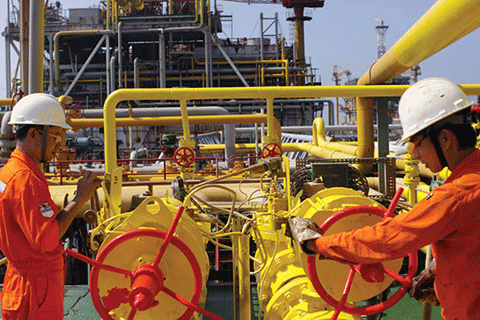
Hence, it is unreasonable that all SOEs are made to face similar tightening by institutions and management mechanisms, like saying “one rotten apple spoils the whole lot”, because only some SOEs have been operating at huge losses, causing the entire management mechanism to fail. As a result, SOEs have not yet been given full autonomy of operations, even those that are deserving.
Many constraints for SOEs
The recent draft report "State Economy and SOE Restructuring: Evaluating implemented results for 2011-2020 and proposing solutions for 2021-2030”, declares that the Central Institute for Economic Management (CIEM) has pointed out weaknesses of economic institutions as regards to SOEs and governance of SOEs.
The most glaring is that SOEs have not yet been given full autonomy and self-responsibility in accordance with the market mechanism. State agencies still decide many issues relating to business administration of SOEs. The reason is that SOEs are constrained by a multitude of regulations on finance, supervision, human resource management, labor management and wages.
For example, in the right to possess, use and dispose assets, the current law regulates the details of cases in which businesses must ask for approval from the owner representative agencies, financial agencies and other related management agencies on finance, assets, expenditure, turnover, profits, outward direct investment, and capital mobilization.
SOEs also have to comply with specific regulations on restricting property rights, such as restricting the scope of capital investment or participation in capital contribution for establishing an enterprise, investment with additional capital, and investment for acquiring other enterprises.
SOEs must ensure the payable debt ratio does not exceed three times the owner’s capital value; is not permitted to contribute capital or invest outside their field; is not allowed to arbitrarily decide to transfer investment capital to other enterprises or foreign ones; strictly has to comply with the principle of capital preservation in transferring of shares and contributed capital; and seek permission and verification from various state agencies for investment of large-scale projects.
Another example is the right to recruit and appoint managers. Under the current regulations, on conditions for the appointment of managers, first of all, for personnel planning, it is difficult to find, select and sign contracts with good managers in the market to appoint to management positions of SOEs.
According to Decree No. 97/2015/ND-CP, on managing those who hold titles and management positions in enterprises, those who are appointed to management positions in a limited company must be appointed for internal human resources, or for the positions equivalent to the appointed positions for external personnel sources. This means that, in order to be included in the plan, holders with management positions must totally meet many state administrative requirements that really are unsuitable for experts.
Recently, the Ministry of Transport proposed to re-buy state shares of the Airport Corporation of Vietnam (ACV) after this enterprise was already equitized. The reason was that the runways at Tan Son Nhat airport and Noi Bai airports are heavily damaged and have an impact on flight safety, need to be upgraded. However, according to the issued law, both the above projects come under state assets and must be invested within a set budget. While mid-term public investment capital for the period 2016-2020 and the state budget for aviation infrastructure hasn’t yet been allocated.
This practice has revealed weaknesses in economic institutions and SOE governance. It is a combination of the policy on industrial development and investment of SOEs and investment policies of state owners. Consequently, a clear governance framework for SOEs is difficult to build and develop, in the same way as the private sector, and in reality there are simultaneous potential risks of unfair treatment and competition among enterprises.
Need new innovative mindset
Nguyen Dinh Cung, former Director of CIEM, said: “Reform is really struggling with difficulties because there is neither a new approach nor a new mindset. Therefore, this must be understood exactly and more importantly the role of SOEs must be firmly identified. Don't express this with extravagant words like impulsion, instruction or guidance. The most effective thing is that enterprises are permitted to perform their best role. In particular, financial efficiency must be considered the most important factor, profit margins must be high and the goal must be to seek more profit. Therefore, it is completely wrong to say that SOEs are a tool for macro-economic stabilization because that will distort the market signals”.
- Mr. Nguyen Dinh Cung, former Director of CIEM
Mr. Cung stated that the first thing to change is to force all SOEs to operate according to the market. Only if SOEs successfully compete with foreign enterprises in the international market, can their competition be recognized and achieve good results. Hence, all SOEs must essentially be offered autonomy and business freedom within the scope set by the state owners.
Mr. Le Xuan Ba, former Director of CIEM, said: “It is not possible that a man who has no competency is forced to be in a leading role. I think we should give up such leading roles. In order to change the real situation, we need to renew our thinking as well as make robust and innovative decisions. The solution is that SOEs must operate in accordance with a fair market mechanism as do other enterprises. Whenever the water rises the boat also rises and the less goods there are, the higher its price is; while the more goods there are, the lower is its price. If we can successfully do so with equitization, science and technology, together with human resources, SOEs can effectively be developed”.




















